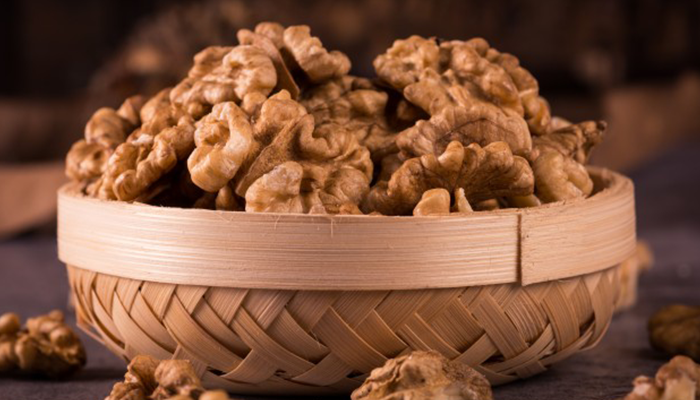Table of Contents
What if you could achieve envy-worthy, glowing skin just by eating right instead of using expensive products? While products certainly help speed up the process, they can’t match the longevity and the authenticity of healthy skin achieved by a healthy diet. After all, healthy is better than healthy-looking.
Believe it or not, but zits and pimples are just waste trying to leave the body. The best way to get and keep a glowing skin is to include natural foods and products in your diet. However, diets shouldn’t be changed drastically without consulting a nutritionist. Moreover, new diet plans should be monitored to see what works and what doesn’t. FITFEAST allows users to connect with nutritionists and get personalized assistance, diet plans, and more in real-time. Track your food and water intake to reach your goals surely and quickly. Your metabolism, weight, and even the health of your organs including your skin depend on your diet.
Foods for Healthy Glowing Skin

Dark, mind you! Here’s another reason for you to eat chocolate – cocoa is good for your skin. You can use cocoa powder as well for a few weeks to hydrate your skin. Those who consume cocoa have smooth skin, which is also less likely to be burnt in the sun.
Eating about 20 grams of oxidant-rich dark chocolate every day improves resistance to UV radiation. It also improves blood flow. But remember that the chocolate must have atl east 70% cocoa in it to avoid consuming excess sugar and receive the said benefits of dark chocolate.

Green tea benefits have made it one of the best beverages worthy of inclusion in virtually every diet. It protects the skin against aging and damage with the help of powerful compounds – catechins. While it improves the skin’s health in many ways, it protects the skin from sun damage as well. You can improve moisture content, reduce roughness, and improve the thickness and elasticity of the skin by consuming green tea regularly for 10-12 week. Avoid having tea with milk as it counters the impact of the antioxidants.

Walnuts are really good for the skin; they consist of essential fatty acids that cannot be produced by the body. Walnuts are better sources of Omega-3 and Omega-6 fatty acids than other nuts. The contents of these fatty acids are balanced, which is essential because Omega-6 fatty acid can cause inflammation.
Skin requires zinc to function properly – wound healing, combating bacteria and inflammation – and walnuts contain considerable amounts of it. Walnuts also contain Vitamin E and C, selenium, and protein.

Plants contain a nutrient called beta-carotene, which is converted into Vitamin A in the body. Foods such as carrots, oranges, spinach, and sweet potatoes are packed with beta-carotene. Carotenoids like beta-carotene act as a natural sunblock and consequently, keep the skin healthy. By protecting the cells from the sun, it prevents wrinkles, death of cells, sunburn, etc. Beta-carotene lens a warm orange color to the skin, thereby, making it look much healthier.

Eating fish like herring, mackerel, and salmon is very healthy for the body. They contain high amounts of omega-3 fatty acids that are good for the skin. They make the skin thick, supple, and keep it moisturized. Dry skin can be a result of Omega-3 fat deficiency. Consuming fatty fish can reduce inflammation that causes redness and acne. Fish oil supplements are also known to fight inflammatory and autoimmune conditions like lupus and psoriasis.
Fish contains Vitamin E, which is one of the most important antioxidants for the skin because it protects against damage by free radicals. The zinc in fatty fish reduces inflammation and produces new skin cells. Therefore, you should eat fish if you want overall healthy skin.

As you probably already know, avocados are extremely healthy and have several benefits for the body including the skin. Avocados can provide it the fats it needs to remain stretchable and moisturized. Studies suggest that they consist of compounds that might protect the skin from the harm of the UV rays. Avocados are a great source of Vitamin E as well, which protects it against damage. Vitamin E works best with Vitamin C, which is also present in avocados. The latter is required by the skin to create collagen – a protein that strengthens the skin. Vitamin C protects the skin from oxidative damage that is caused due to the sun.

Vitamin A, vitamin C, and zinc make broccoli one of the healthiest green veggies. Additionally, it contains a carotenoid called lutein, which has similar benefits as beta-carotene; it prevents the skin from drying and wrinkling. Most importantly, broccoli contains sulforaphane that might even fight skin cancer. It counters sun damage by neutralizing free radicals and improves immunity.

Yogurts along with other dairy products help maintain the firmness of the skin, which reduces the possibility of lines. Greek yogurt, which is recommended to those who workout, is especially healthy owing to its protein content that is almost double to that of other yogurts. You should consume at least a single serving of yogurt each day to avoid dry, sensitive, or irritable skin. Yogurt makes the complexion smoother as well. Add berries to add flavor to it.

Doctors claim that those who eat bell peppers have fewer wrinkles, especially around the eyes. Bell peppers, especially red and yellow are packed with beta-carotene and Vitamin C, protect the skin against sun damage and keep it firm and tight.

Red wine contains antioxidants known as polyphenols that fight free radicals. However, drinking more than 1 glass of red wine daily might not help your cause. Alcohol makes the body lose water, which makes the skin dry. This might even lead to wrinkles and decrease Vitamin A levels in the body. So, one glass a day should do it.
Apart from this, soy, tomatoes, and sunflower seeds are also good for the skin. Ask your nutritionist to create your diet around these foods for irresistible skin.


